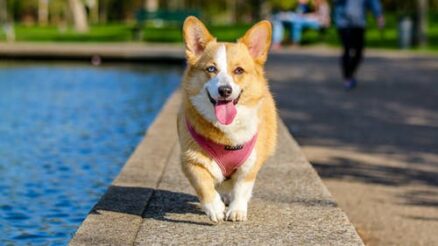As pet owners, we strive to provide the best care for our furry companions throughout their lives. Just like humans, pets go through various life stages, and as they age, their needs change as well. One crucial aspect of senior pet care is nutrition. Proper nutrition plays a vital role in ensuring their well-being and overall health.
In this article, we will delve into nutrition needs for senior pets, exploring what you should know to keep your beloved furry friend happy and healthy in their golden years.
What Are the Key Nutritional Requirements for Senior Pets?
Here are the essential nutritional requirements for senior pets to thrive:
Balanced Diet for Optimal Health
A balanced diet is the foundation of good health for senior pets. Their metabolism slows as they age, and their activity levels may decrease. Therefore, providing them with a diet that meets their specific needs is essential. High-quality pet food formulated for senior pets can help ensure they receive the right balance of nutrients, including protein, fats, carbohydrates, vitamins, and minerals. Look for pet food specifically labeled for “senior” or “mature” pets, designed to address their unique nutritional requirements.
Adequate Protein for Muscle Health
Protein is a crucial component of a senior pet’s diet, as it helps maintain muscle mass and supports overall health. Look for pet foods that contain high-quality animal protein sources, such as chicken, fish, or beef. These easily digestible protein sources provide essential amino acids that promote muscle maintenance and repair.
Remember, senior pets may have specific dietary needs, so consult your veterinarian to determine the appropriate protein levels for your furry friend.
To schedule an appointment with a vet, you can visit https://www.oceansidevh.com/site/veterinary-services-oceanside/cat-dog-routine-exams.
Joint Support for Mobility
As pets age, they may experience joint issues such as arthritis or decreased mobility. Providing them with a diet that includes glucosamine and chondroitin can help support joint health and improve their mobility. Look for pet foods specifically formulated to support joint health, or consider adding joint supplements recommended by your veterinarian to their daily routine.
In addition to focusing on a nutrient-rich diet, prioritizing routine pet vaccination is paramount for your pet’s overall health. Vaccines prepare the pet’s immune system to defend itself against any invasion of disease-causing organisms. They significantly lessen the severity of future diseases, and certain vaccines can entirely prevent infection.
Read more about pet vaccination on the veterinary facility’s website.
Weight Management to Prevent Obesity
Weight management is crucial for senior pets, as obesity can lead to various health issues, including joint problems, diabetes, and heart disease. Ensure that you feed your furry friend an appropriate amount of food to maintain a healthy weight. Avoid overfeeding and opt for portion control to prevent excess weight gain. If you’re unsure about the right portion size for your senior pet, consult your veterinarian for guidance.
Dental Health for Overall Well-Being
Senior pets are more susceptible to dental issues such as gum disease, tooth decay, and tooth loss. Poor dental health affects their ability to eat comfortably and can lead to other health problems if left untreated. Incorporating dental care into their routine is essential. Besides regular veterinary dentistry procedures like cleanings, choose pet foods that promote dental health, such as those designed to reduce tartar buildup or with a specific kibble shape that aids teeth cleaning.
You can check out https://www.oceansidevh.com/site/veterinary-services-oceanside/dentistry to learn more about veterinary dental care.
Adequate Hydration for Optimal Functioning
Proper hydration is essential for pets of all ages, including seniors. As pets age, they may be more prone to dehydration due to decreased water intake or underlying health conditions. Ensure your senior pet can always access fresh, clean water. You can also incorporate wet food into their diet, as it contains higher moisture content, helping to keep them hydrated.
Final Thoughts
As our furry companions enter their golden years, it’s crucial to prioritize their nutritional needs. A balanced diet, adequate-protein, joint support, weight management, dental health, and proper hydration are key components of senior pet nutrition. However, it’s important to remember that each pet is unique, and their nutritional requirements may vary. Consulting with your veterinarian is essential to tailor a diet plan that meets your senior pet’s needs.
You can contribute to their overall well-being, longevity, and happiness by providing them with the right nutrition. Ensure your senior pet’s golden years are filled with love, care, and a diet that supports their health every step of the way.


